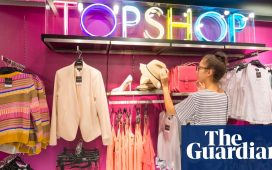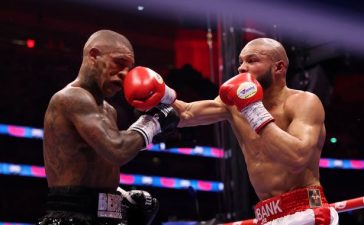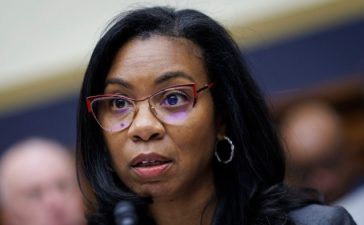Unlock the Editor’s Digest for free
Roula Khalaf, Editor of the FT, selects her favourite stories in this weekly newsletter.
Fashion group Burberry has replaced its chief executive and suspended its dividend after warning that annual profits will fall short of expectations.
The company, which is best known for its trenchcoats, said Jonathan Akeroyd, who had been in the role for two years, was leaving immediately “by mutual agreement”. He will be replaced by Joshua Schulman, a former chief executive of Coach and Jimmy Choo.
Shares in the group fell more than 16 per cent on Monday morning.
Under Akeroyd, Burberry had sought to put “Britishness” at the heart of efforts to revive the brand and take it more upmarket with designs by Bradford-born creative director Daniel Lee, who joined in 2022. But the company has struggled to engineer a recovery in the face of a wider downturn in the luxury sector.
Chair Gerry Murphy insisted on Monday that Lee was staying put, adding that the designer had already spoken to Schulman and the two would meet this week.
Consumers were less confident and relied more on “familiar brands” amid a challenging economic climate, he said, admitting that Burberry “probably went a bit too far too fast” with its ambition to become more premium.
Schulman would not seek to overhaul the strategy, Murphy told reporters, nor lower prices en masse, but the brand would focus on more staple items such as its trenchcoats and the Burberry check as well as have a wider range of prices.
“Josh is a proven leader with an outstanding record of building global luxury brands and driving profitable growth,” Murphy said. “[He] is absolutely convinced that Burberry’s Britishness is its key distinguishing factor.”
The 52-year-old American will join as chief executive on July 17 and be based at Burberry’s head office in London.
Luca Solca, an analyst at Bernstein, said that “it was apparent that the attempted upmarket repositioning had failed — as well as the relaunch under Daniel Lee as creative director — as Burberry heavily discounted its products online and elsewhere”.
Burberry said that if the weak trading in the first quarter persisted into the second, the group would report an operating loss for the first half and that annual profits would be below expectations.
As a result of the deterioration in trading, Burberry said it would suspend its full-year dividend to strengthen its balance sheet.
Piral Dadhania, an analyst at RBC Capital Markets, said the latest snapshot of trading was “incrementally worse vs the already lowered guidance [in January]”, which pointed to “soft brand momentum”.
The group said that with the exception of Japan, sales fell across all its markets in the first quarter of the year, with overall same-store sales dropping 21 per cent.
Akeroyd had been targeting sales of £5bn in the long term by selling more higher-margin leather goods, shoes and accessories, such as its Rocking Horse handbags.
Murphy said Schulman had been in talks about a board role “and as things evolved, it was clear that he was interested in a bigger role . . . We acted very quickly.”
The company also confirmed it was in consultations with “a few hundred” employees about redundancies, predominantly corporate roles in the UK.
Murphy said the fall in the share price was a response to “weak current trading — we would acknowledge our results are disappointing” but the underlying value of the brand was solid. He dismissed suggestions that Burberry was more vulnerable to a takeover as a result.
Solca said that “against a weak market, it is not surprising to see brands in transition — like Burberry — struggle”.
Amid a broader downturn in the sector, luxury companies have experienced diverging fortunes, with the weakest such as Kering finding it hard to reboot its flagship Gucci brand. In contrast, Hermès, the maker of Birkin bags, reported a 17 per cent increase in quarterly revenues.









